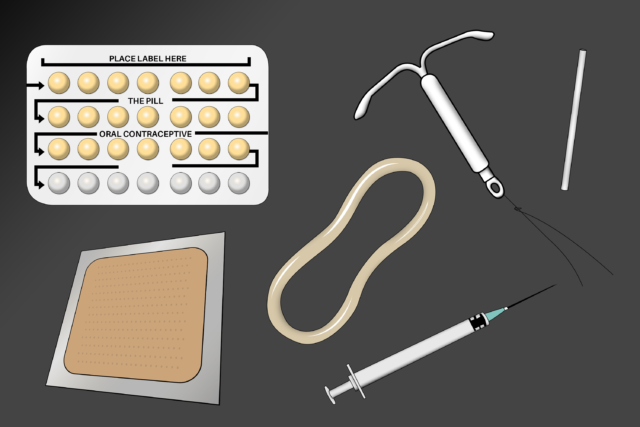The phrase “birth control” ignites judgements and biases as reproductive health has become increasingly politicized. But birth control should not be looked at as a taboo.
The judgement could come from preconceived associations with abortion. Or even its relationship to sex. But time and time again, scientists prove that birth control is not the same thing as an abortion, and the assumption that any woman using birth control must be sexually active isn’t accurate.
All forms of birth control are used to prevent conception. An abortion can only occur after conception takes place. Therefore, birth control is not an abortion and abortion is not birth control.
In fact, one of the many resources Baylor’s health center offers is a birth control consultation. Baylor “affirms the biblical understanding of sexuality” in its Statement on Human Sexuality, which does not include heterosexual sex outside of marriage.
Yet Baylor still manages to provide birth control options for its students. That’s because birth control is medicine.
In a study conducted by the Guttmacher Institute, 14% of women who use oral birth control pills rely on them exclusively for non-contraceptive purposes. Titled “Beyond Birth Control: The Overlooked Benefits of Oral Contraceptive Pills,” the document showed that 58% of the women who use it to prevent pregnancy also rely on it for other purposes — such as treating acne or controlling painful menstrual cramps.
Although it is used by many to prevent pregnancy, there are more reasons women use birth control. Different birth control options can help with irregular periods, reduce the pain experienced during periods, decrease acne and also treat more serious medical issues.
Doctors can prescribe birth control to treat polycystic ovary syndrome (PCOS), a hormonal imbalance that can cause irregular periods and excessive male hormones as well as endometriosis, which is characterized by severe cramps or pelvic pain during the menstrual cycle.
Hormonal birth control methods can also be prescribed to treat symptoms of premenstrual syndrome (PMS), such as bloating and mood swings as well as premenstrual dysphoric disorder (PMDD), a more severe form of PMS.
Birth control can also be utilized for preventive measures. Women who use hormonal birth control methods, like the pill, are less likely to develop anemia. It can help prevent the formation of cysts as well as endometrial or ovarian cancer.
In some cases, birth control will stop women from having periods. With birth control pills, patches and rings, women can skip their periods. Shots and implants can stop regular periods almost the entire time they are being used.
The Baylor Lariat’s editorial board previously published a story in September 2019 about the sexual health resources offered at the Baylor Health center. In addition to birth control consultations, it also offers STI testing and well women’s exams. If you want to schedule an appointment or get more information about services offered, click here.



